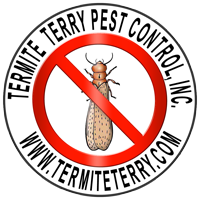
No one wants to have their home or place of business invaded by pests or rodents. There are some who will still reach for a can of “bug spray” when they have a pest problem. But, times are changing and there are many who don’t want to unnecessarily expose their family and pets to pesticides.
Pesticides are not the only answer to controlling pests, and there are a lot a lot of things you can do yourself – at little or no costs to you. Here are some tips to help keep your home pest-free this summer:
1. Control excess moisture. This should always be your first step when trying to control a pest problem because insects and rodents cannot survive without water. Check for plumbing leaks, roof leaks, leaky rain gutters, etc. Take a look at the ground around your home, and make sure that you aren’t overwatering your lawn and plants. Check your sprinkler system and adjust it if needed. Insects and rodents need a lot of water and if you keep your home as dry as possible, they will find your home a lot less attractive.
2. Eliminate food sources. It is important for you to remember that insects and rodents cannot survive without food. You can solve a lot of insect and rodent problems by not leaving dirty dishes in the sink, emptying your trash cans daily and keeping your food in sealed containers. Check around your kitchen appliances and cabinets, and you may find food debris in these areas. By cleaning that up, you’ll make your kitchen a lot less attractive for pests. Also, if you have pets, don’t leave their food and water bowls out at night – these are like an “all night diner” for bugs and rodents.
3. Clean up leaf piles and debris from around your home. Insects and rodents cannot survive without a place to live, and if you’ll eliminate their harborage a lot of pests will disappear naturally.
4. Keep all plants and trees cut back away from your home. This simple step can be a very effective control measure, and it will discourage pests from entering your home. You should cut all trees back at least 4 feet away from your home, and make sure that none of the tree branches are left hanging over your roof.
5. Remove fruit bearing plants that attract insects and rodents. You may also want to remove other plants that harbor honey-dew producing insects (Fig trees, cherry laurel, bamboo, oleander, etc.).
6. Keep firewood off the ground and store it away from your home. Also, be sure to check for pests before bringing any firewood inside your home.
7. Seal up cracks and holes in your home’s exterior walls. This helps to keep pests out of your home and will eliminate places for them to live. Weather stripping around doors and windows will also help to keep pests out.
8. Inspect the screens on your doors and windows and repair them if needed. Screens are a very effective way to keep pests out of your home. While you’re inspecting your home, don’t forget to check the screens in your attic, garage, and subarea vents. These screens are especially important because they keep out birds, rodents, and small animals.
9. Guard against pest invaders by checking incoming items for “hitchhiking” bugs. Many types of pests can be brought in with luggage, laundry and groceries. Take a close look before you bring any flowers or plants into your home because you’ll often find insects living in them.
10. Ensure good ventilation in attics, garages and subareas. An effective ventilation system will help keep these areas dry, will naturally reduce the amount of insects, and will help to prevent mold and mildew problems.
11. Keep food and garbage in tightly sealed containers. This is especially important to do at night because this is when many pests are most active.
You’ll find that you can use these tips and solve a lot of pest problems without using any pesticides. If an application of a pesticide is still needed, you should select the least toxic product, use the least amount possible, and follow all of the manufacturer’s instructions.
Do you have a pest problem that you need help with? Call us at (949)631-7348, and we’ll be happy to schedule an appointment at your convenience.
